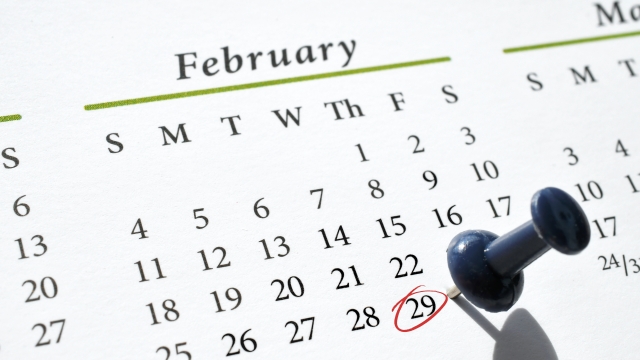Most of us flip through the days on the calendar without giving them much more than a glance.
But, when an extra day comes along every four years, Mollie Simmons notices. She was born on Feb. 29, 2003, and considers herself a leap day baby.
"I've been alive for 20 years, but I've only had 5 birthdays," Simmons said.
Feb. 29 marks this leap day baby's 5th calendar birthday, even though she is a sophomore in college. On non-leap years, Simmons will typically celebrate her birthday on Feb. 28. Being born on leap day has come with its share of challenges over the years.
When Simmons was first born her mother had a hard time getting health insurance because there was no Feb. 29 on the website she was using to fill out information. Her driver's license also currently says she was born on Feb. 28.
"I've been in so many science classes where the teacher would explain the importance of leap day and everyone would look at me. It has felt isolating but also it's exciting when my birthday happens," she said.
SEE MORE: 24 noteworthy events to mark on your 2024 calendar
Why do leap years exist?
Leap years essentially keep the months in sync with annual events, including equinoxes and solstices, according to the Jet Propulsion Laboratory at the California Institute of Technology.
It's a correction to counter the fact that Earth's orbit isn't precisely 365 days.
There is just a 1 in 1,461 chance of being born on a leap day.
Worldwide there are only an estimated 5 million or so people born on this day that doesn't always exist. Kerry Nagle, a Colorado resident who was also born on leap day. has experienced just that. She was born 44 years ago but is only celebrating her 11th calendar birthday this year.
"I might feel like an 11-year-old in my head but the mirror sometimes corrects my thinking," Nagle joked.
She vividly recalls when her elementary school teacher hung up a calendar at school with all of her classmate's February birthdays: Hers was missing.
"I looked at the calendar and said, 'Where's my birthday?' and she said, 'You don't have one.' I remember getting off the bus crying. My mom said, 'What's wrong?' and I said 'I was never born,' That year she threw me two birthdays," Nagle explained.
That childhood trauma prompted her to write a children's book. The book, titled "The Girl With Two Birthdays," follows the story of a girl who faces a dilemma when she realizes that her birthday doesn't fit into the conventional school calendar.
Nagle's hope is other kids may not experience the same isolation she did all those years ago.
"This has formed a bit of who I am. I'm unique, and unique is a good thing. So I hope this shows other kids born on Feb. 29 that being different is fun and cool. Embrace it and use it to your advantage of who you are."
Trending stories at Scrippsnews.com





